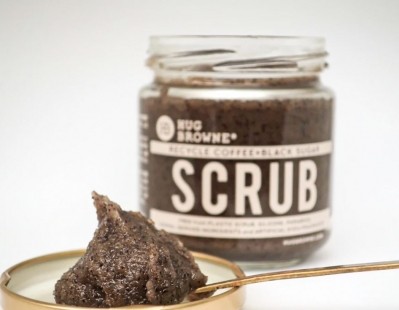Just add water: Singapore start-up launches hand soap tablets to bring low-cost sustainability to consumers
![euuse believes its reconstituted format is the ideal solution to provide consumers sustainable hand soap products at an affordable price point. [Reuuse]](/var/wrbm_gb_food_pharma/storage/images/_aliases/wrbm_large/publications/cosmetics/cosmeticsdesign-asia.com/headlines/brand-innovation/singapore-start-up-launches-hand-soap-tablets-to-bring-low-cost-sustainability-to-consumers/12173792-1-eng-GB/Singapore-start-up-launches-hand-soap-tablets-to-bring-low-cost-sustainability-to-consumers.png)
Founder Vino Kanna told CosmeticsDesign-Asia that the idea for Reuuse was born from the frustration he experienced buying conventional liquid hand soaps during the COVID-19 pandemic.
“I realised I was buying hand soap more often and I just saw so much plastic getting wasted. Even with refill pouches, that’s wasted plastic and worse they are messy to refill.”
Inspired by portable hand washing soap sheets design for travel and outdoors, the company started the development of soaps in a tablet format which activated with water.
Although the idea was simple in theory, Kanna, whose professional background is in digital marketing, said it underwent several tests to get the right formulation.
“We landed on the idea of a tablet form somewhere around February, but we had to keep testing the formulation. We had to get the right level of foam and ensure the formulation was not too harsh on the skin.”
After almost a year in development, Reuuse debut online with its Foaming Hand Soap Tablets in December 2020 and interest in the product took Kanna by surprise.
“Sales have been really good. We were expecting it to be slow, but it’s been better than we anticipated. There was a lot of interest in the products because I think the consumer today very interested in sustainability,” he said.
The company was also approached to exhibit its products at The [Not-So] Convenience Store at the Singapore National Design Centre, which showcases environmentally-friendly items such as collapsible cups and reusable straws.
Kanna believes that with more awareness on sustainability and the impact of plastic waste, this was a fitting time for the company to launch its products.
“Nowadays its so common to see people bringing reusable bags for shopping, even though the supermarkets don’t charge you for it. You go for lunch in the [Central Business District] and you see people using reusable coffee mugs and containers. Five or six years ago, you would see these behaviours so much.”
With the consumer preconception that sustainable products are more expensive, Kanna noted that he believes the products were well-received because of its price point.
The brand sells a set of 10 soap tablets for SGD18 (USD13.50) and alternatively sells a set with three tablets and a reusable plastic bottle at the same price.
“Unlike liquid soaps that are 90% water our tablets take up much less space. Hence our freight and storage costs are low. We are also a direct-to-consumer company so we are able to eliminate the middlemen, and consumer can get the most out of their money.”
Moving forward, the company intends to expand the business with more products but currently has no plans to develop more personal care products in a tablet format.
“We’re getting interest for other products like body soaps, cleansers but we would need to work more on the formulation. My worry is creating something that is too harsh on the skin. It’s possible, but we’re not working on it now,” said Kanna.
However, he said it may expand the range of hand soaps with more fragrances.
“We’ve already experimented with different fragrances, but the one we have right now was the best formulation. If we find something that is equally good, we will definitely want to expand the line.”
Instead, this year the company plans to launch a multi-purpose cleanser that will also be in a tablet format.
Additionally, Kanna said he hoped to improve the packaging of the products. “Because we were operating with a lower budget, we had to launch with a plastic bottle. If things go right, the next batch we may introduce a glass bottle.”

![MY YARD is helping smaller beauty brands create ready-to-market products and packaging remotely. [MY YARD TECH]](/var/wrbm_gb_food_pharma/storage/images/_aliases/wrbm_medium/publications/cosmetics/cosmeticsdesign-asia.com/headlines/packaging-design/my-yard-aims-to-empower-indie-beauty-brands-with-portable-vacuum-former-machine/12280581-1-eng-GB/MY-YARD-aims-to-empower-indie-beauty-brands-with-portable-vacuum-former-machine.jpg)
![CTK Cosmetics has launched a virtual beauty innovation platform to provide contactless and speedy service. [Getty Images]](/var/wrbm_gb_food_pharma/storage/images/_aliases/wrbm_medium/publications/cosmetics/cosmeticsdesign-asia.com/article/2021/03/23/ctk-cosmetics-new-digital-platform-enables-contactless-collaboration-for-beauty-brands/12281058-1-eng-GB/CTK-Cosmetics-new-digital-platform-enables-contactless-collaboration-for-beauty-brands.jpg)
![FSKorea sees strong need for recyclable make-up brushes to keep up with rising demand for sustainable beauty products. [Getty Images]](/var/wrbm_gb_food_pharma/storage/images/_aliases/wrbm_medium/publications/cosmetics/cosmeticsdesign-asia.com/headlines/packaging-design/strong-need-for-eco-friendly-make-up-brushes-in-sustainability-push-fskorea/12262055-1-eng-GB/Strong-need-for-eco-friendly-make-up-brushes-in-sustainability-push-FSKorea.jpg)

![[Getty Images]](/var/wrbm_gb_food_pharma/storage/images/_aliases/wrbm_tiny/publications/cosmetics/cosmeticsdesign-asia.com/china/china-focus-latest-developments-in-china-s-booming-beauty-market22/17370102-1-eng-GB/China-focus-Latest-developments-in-China-s-booming-beauty-market.jpg)
![YSL's LoveShine launch has sparked a demand surge in Japan. [YSL]](/var/wrbm_gb_food_pharma/storage/images/_aliases/wrbm_tiny/publications/cosmetics/cosmeticsdesign-asia.com/article/2024/04/24/ysl-loveshine-launch-propels-lip-gloss-sales-to-record-highs-in-japan-since-2020/17372064-1-eng-GB/YSL-LoveShine-launch-propels-lip-gloss-sales-to-record-highs-in-Japan-since-2020.jpg)
![There is significant scope for innovation and new launches in the hair repair sector, especially in soaring markets such as China. [Getty Images]](/var/wrbm_gb_food_pharma/storage/images/_aliases/wrbm_tiny/publications/cosmetics/cosmeticsdesign-asia.com/article/2024/04/24/croda-zeroes-in-on-hair-repair-solutions-as-damage-hair-concerns-surge-in-markets-like-china/17362731-1-eng-GB/Croda-zeroes-in-on-hair-repair-solutions-as-damage-hair-concerns-surge-in-markets-like-China.jpg)



![Lubrizol has extended its partnership with C-beauty major PROYA. [PROYA]](/var/wrbm_gb_food_pharma/storage/images/_aliases/wrbm_tiny/publications/cosmetics/cosmeticsdesign-asia.com/headlines/brand-innovation/lubrizol-bullish-on-potential-of-c-beauty-growth-potential/17362515-1-eng-GB/Lubrizol-bullish-on-potential-of-C-beauty-growth-potential.jpg)
